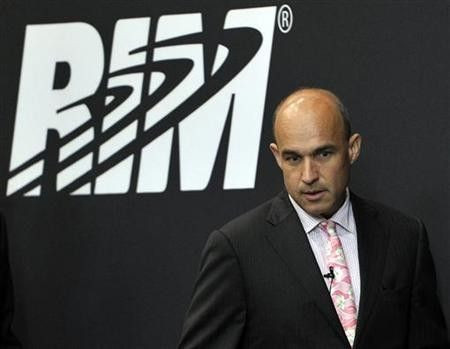RIM BES/BIS Worth $5-$10 Billion in Sale: Who Will Buy It?

Jefferies believes Research In Motion Ltd.'s BlackBerry Enterprise Server/BlackBerry Internet Service (BES/BIS) infrastructure could be worth $5 billion to $10 billion in a sale. But who will buy it?
"We believe RIM’s BES/BIS infrastructure could be worth $5-$10 billion in a sale, but any buyer would likely have to spend two years and millions of dollars to integrate it into their operating system," said Peter Misek, an analyst at Jefferies.
BES designates the middle-ware software package that is part of the BlackBerry wireless platform supplied by RIM. The software and service connects to messaging and collaboration software (Microsoft Exchange, Lotus Domino, Novell GroupWise) on enterprise networks and redirects emails and synchronize contacts and calendaring information between servers, desktop workstations, and mobile devices.
Some third-party connectors exist, including Scalix, Zarafa, Zimbra, and the Google Apps BES Connector, although these are not supported by RIM.
BIS stands for Blackberry Internet Service. Basically, this is a service from your provider that lets you receive email and access the Internet on personal Blackberries.
BIS differs from BES in that BIS retrieves personal email whereas BES retrieves corporate email. Normally, BIS provides push email for up to 10 non-corporate email accounts and some form of Internet data service, whether that be a set MB limit, or unlimited.
Misek said his thoughts on potential acquirers are:
Microsoft will wait to see the success of Windows 8 next year before making such a decision, Misek said.
Misek believes Nokia Corp. is also hinging its hopes on the success of Windows 8.
Google Inc. would be more likely to build their own solution and already has worldwide infrastructure deployments, Misek said.
HP already bought Palm and would be unlikely to undertake another huge acquisition with years of additional development, Misek said.
Misek said ZTE and Huawei would be unlikely to have their bids approved by the U.S. government due to security concerns.
Samsung is developing its own operating system but such an acquisition would be out of character for the company, Misek said.
Misek said Dell, HTC, Acer, Asus, LG, and Lenovo are all unlikely to spend such a large sum of money for a high-risk acquisition.
© Copyright IBTimes 2025. All rights reserved.





















